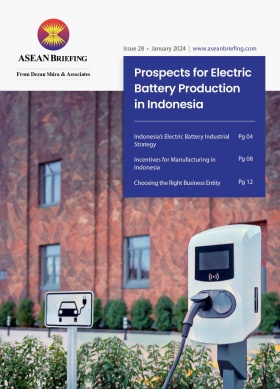Thailand Implements Mandatory Reporting of Business Operator Income on Electronic Platforms
Since January 1, 2024, Thailand’s Revenue Department has required electronic platforms such as e-commerce and e-marketplaces to disclose their revenue from the business operators on their platforms.
The Revenue Department hopes that it can facilitate more accurate and efficient tax collection and thus develop fair competition between local and international sellers.
Under the notification, electronic platforms must open a special account containing data on the revenues received from each business operator and submit the data through the Revenue Department’s electronic reporting system within 150 days of the fiscal year.
Further, only electronic operators registered in Thailand with annual revenue exceeding 1 billion baht (US$28 million) must submit the report. Electronic operators under the supervision of the Bank of Thailand or the Office of the Securities and Exchange Commission are exempted from this requirement.
Thailand’s growing digital economy
According to the eConomy SEA report, Thailand’s digital economy is predicted to have a gross merchandise value (GMV) of US$50 billion by 2025 and increase to US$100-US$165 billion by 2030, meaning Thailand will have the second-largest digital economy behind Indonesia.
E-commerce is the main sector driving growth in Thailand’s digital economy with a GMV of US$23 billion in 2023 and is expected to increase reach US$30 billion in 2025 and US$60 billion by 2030.
Other opportunities in Thailand
As the second-largest economy in Southeast Asia behind Indonesia, Thailand presents ample investment opportunities for foreign businesses. The country has experienced growing domestic consumption over the decades coupled with robust export-oriented manufacturing, resulting in the country gaining the status of an upper-middle-income nation in 2011.
Value added manufacturing
Thailand’s economy is dependent on exports, which accounted for some 60 percent of GDP before the pandemic. As such, the country’s manufacturing sector plays an important role, contributing 27 percent of GDP in 2021; the sector’s success or failure often dictates the overall health of the economy.
Over the last 50 years, Thailand has built up a robust manufacturing sector. It is now keen to attract investments for mid/high-tech manufacturing, especially as regional rivals like Vietnam and Cambodia become new centers for low-cost production in the region.
EV manufacturing
The Thai government wants Thailand to evolve into a base for electric vehicle (EV) production. German luxury carmaker, Mercedes, chose Thailand as its first site in Southeast Asia to manufacture its electric EQS model with Toyota as well as Chinese car manufacturer Great Wall Motor signing up for a government incentive plan to produce EVs in Thailand.
Medical tourism
Thailand earned US$1.8 billion from over four million medical tourists in 2019, which amounted to three percent of the GDP and was projected to reach 3.5 percent until the pandemic struck. The country served clients mainly from the US, the Middle East, and Europe.
Medical treatments can be lower by up to 30 percent compared to the West, and healthcare quality is comparable to leading hospitals worldwide. The Thai medical tourism industry is projected to have a market value of US$24.4 billion by 2027.
About Us
ASEAN Briefing is produced by Dezan Shira & Associates. The firm assists foreign investors throughout Asia and maintains offices throughout ASEAN, including in Singapore, Hanoi, Ho Chi Minh City, and Da Nang in Vietnam, in addition to Jakarta, in Indonesia. We also have partner firms in Malaysia, the Philippines, and Thailand as well as our practices in China and India. Please contact us at asean@dezshira.com or visit our website at www.dezshira.com.
- Previous Article Malaysia’s Public Holidays for 2024
- Next Article Guide to Indonesia’s Halal Certification Requirement: Q & A







